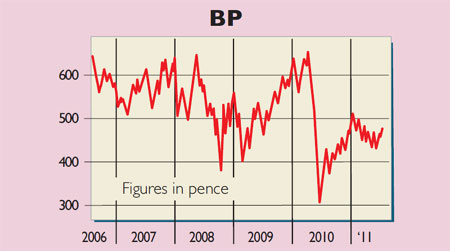
Oil giant BP announced second-quarter profits of $5.6bn on Tuesday, a considerable improvement on record losses of $17bn a year ago. But this turnaround failed to impress investors sufficiently: total production figures disappointed and the company’s dividend remained low. The news sent BP shares sliding, ending the day 2.4% down.
What the commentators said
BP has made remarkable progress in recovering from last year’s catastrophic Gulf of Mexico oil spill, and the company and its new chief executive Bob Dudley “are back from the brink”, said Sylvia Pfeifer in the Financial Times. “However, the news was not good enough for some.” Investors have not fully appreciated that this would be a self-confessed “year of consolidation” for BP and are demanding “more radical ways to unlock value”. Many are calling for the company to follow the lead of US group ConocoPhillips by permanently splitting its refining and marketing division from the exploration and production business.
That’s a telling suggestion since “only broken companies need breaking up”, wrote Damian Reece in The Daily Telegraph. And BP has definitely showed some cracks, as it slumped to a market value of £89bn and reported production down 11% on last year. Failure to deal with this could mark “the demise of BP” – a problem only exacerbated by the lack of a concrete long-term strategy that would keep it intact. Dudley’s response to the calls for restructuring was only to say that he “hasn’t ruled out” the possibility of splitting the company in two.
Yet all is not lost, argued Alison Smith in the Financial Times. The company’s drop in output can be largely explained by its lack of drilling activity in the Gulf of Mexico. Future cash flow looks promising. Optimists can equally well say that BP looks set to continue moving from “strengthening to strength”.